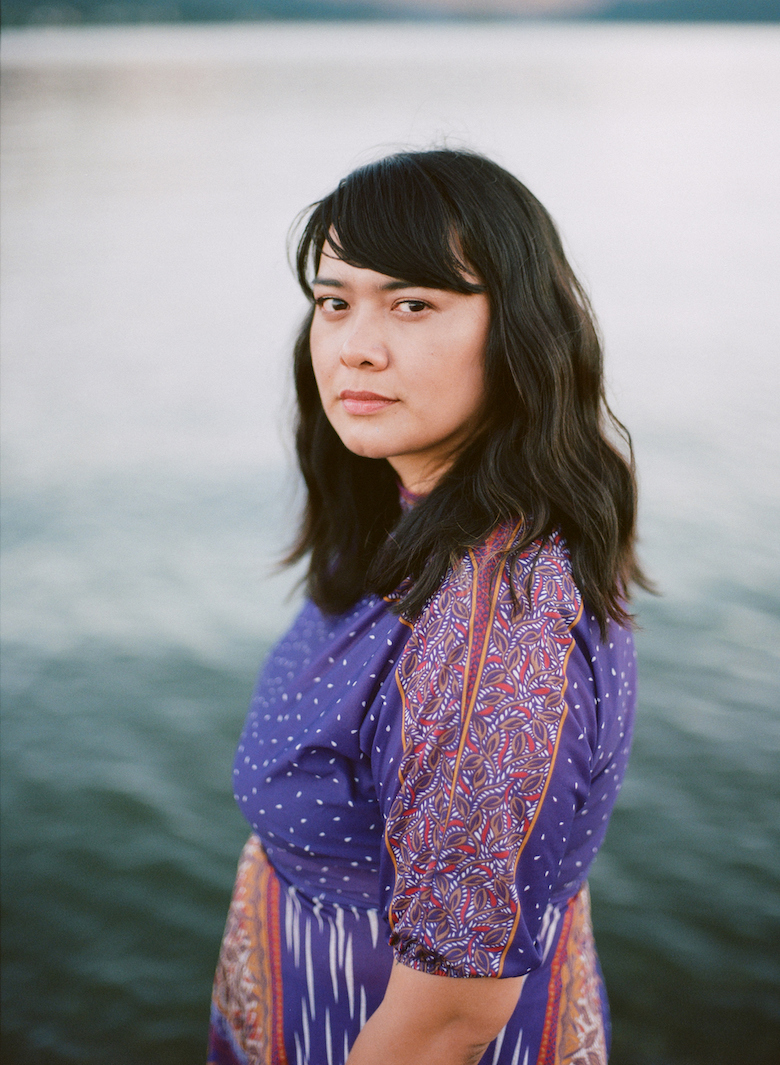“There are certain subtle things that will happen,” says Katherine Paul, the rock artist who performs as Black Belt Eagle Scout. “At venues, people will come up to the guy—my drummer—and talk to just him, and not me or the other woman in the band. And I know they’re just talking to this man because they think that it’s the dude’s band. But no, it’s my band.”
Laughing, Paul goes on to characterize the typical “white indie rock dudes” that fill the crowds and stages of the indie music scene. “Growing up and listening to certain types of music, all I saw were white people. You definitely have to search to find people who look like me,” she says.
But when asked if she ever feels pressure to conform to the conventions of her highly white, highly male genre, Paul says flatly: “I’m anti-that.”
“It’s really important for me to be there for people of color, especially as a person of color. I want to talk about my music and background, and hopefully other indigenous and queer voices can be raised up too.”

(Photo: Jason Quigley)
Paul grew up on the Swinomish Indian Tribal Community reservation, a small Native American community near Anacortes, Washington. Inspired by both the riot grrrl scene of the Pacific Northwest and the powwow drumming traditions of her family, Paul’s music has been closely tethered to her identity. “If I didn’t grow up where I did, I don’t know what sort of music I would be drawn to,” she says.
After moving to Portland in 2007 to attend Lewis & Clark College, Paul played drums and sang in a number of local bands before developing her solo work as Black Belt Eagle Scout. Initially written as a creative side project in 2016, her debut album Mother of My Children was first released by local label Good Cheer Records in 2017, then reissued a year later under the Omaha, Nebraska-based label Saddle Creek. Now, Paul splits her time between her primary job as a talent buyer at a Portland music venue, and touring the country performing her album.
When describing her work as Black Belt Eagle Scout, Paul rarely discusses music without also discussing politics and identity. She says that Mother of My Children draws as much inspiration from a stagnant relationship with an ex-girlfriend as it does from the enduring scars of colonialism in America. In her song “Indians Never Die,” Paul addresses ignorant colonizers directly, as though they’re scorned lovers: “Do you ever notice what’s around you / When it’s bright, wrapped up for you?”
For Paul, ancestral loss begets private loss. Consequently, her music career and her activism often merge into one.
“A big thing for me is about de-colonization, and trying to change the viewpoints of people in the settler mindset,” Paul says. “One of the most important things is to understand how indigenous people think, especially if you’re living in the United States. Their land was stolen, they underwent so much genocide, and they’re still surviving and thriving. People need to understand the history of the place they’re inhabiting.”
Perhaps surprisingly, Paul says her own reckoning with colonial history didn’t take place in the Swinomish Indian Tribal Community. “On the reservation, I was fully immersed within my culture,” Paul says. “I was surrounded by people who looked like me and shared my culture. And then I moved away and went to a big city—well, Portland—to go to college.”
“Portland is really white, and when I went to college I felt like I didn’t deserve to be there. I would think: ‘I’m the only Native person here. This isn’t for me. I don’t deserve to be here.'”
But college was also the catalyst for what Paul calls her “awakening.”
“I started researching Native history and anthropology and realized it’s not just [about] me and my life growing up on my reservation,” Paul says. “[Native history] is about so many other people’s lives who are survivors of genocide. College really helped me look at the wider perspective and trauma that Native people have gone through.”

Acknowledging that trauma, Paul understands, can often be unpleasant for white Americans, and exhausting for people of color. She knows it isn’t sustainable to be perpetually angry, and recognizes the importance of fellowship in organizing.
“It’s important to organize and get out and protest, but that takes a lot of energy, and people of color have been doing that for so long. Sometimes it’s draining,” she admits. “For me, it’s important to surround myself with people who are like me and understand what we’re going through, so we can support one another.”
“For example, I’ll get upset at the president because he’s a terrible, terrible person and there’s all this really shitty stuff going on. That makes me want to be a better friend to my friends, and be a positive part of uplifting voices that are being attacked.”
Building a network of support, Paul says, is crucial for people of color, particularly those trying to move forward in the music industry. “When I look at artists like Mitski and Japanese Breakfast, I know they had to have had great allies on their team who wanted them to succeed,” she says. “And then I feel empowered by these artists, because even though we have different cultures, I feel like I have a place in the industry too.”
“We all think about equality and what it would be like to be normal,” Paul says. “And having women—queer, young women of color—raised up at the forefront of the mainstream music industry makes me think we’re getting closer to that. It makes me feel like me and other minority voices can do anything, no matter what white society tells us.”

Pacific Standard’s Ideas section is your destination for idea-driven features, voracious culture coverage, sharp opinion, and enlightening conversation. Help us shape our ongoing coverage by responding to a short reader survey.





